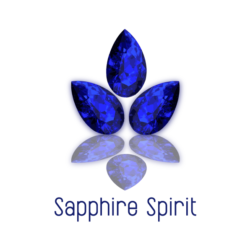Clinical Reiki: Reiki in Medical Settings

Reiki is now one of the top three complementary in-patient therapies in U.S. Hospitals. In order, the top three in-patient therapies include Massage Therapy (1), Music and Art Therapy (2), and Healing Touch Therapies (3), according to the American Hospital Association.
In 2002, the top 25 hospitals ranked by U.S. News and World Report all reported utilizing Reiki when contacted by the International Association of Reiki Professionals (IARP). Sixty percent (60%) reported having formal or informal Reiki programs in place. All 25 hospitals reported that they believed Reiki to be at least somewhat beneficial for patients and over half (67%) said they believed Reiki to be highly beneficial. Since then the number of hospitals and medical practices in the United States including Reiki as a service has grown to over 700 as healthcare professionals, patients, and caregivers seek non-addictive pain management and stress reduction options.
Reiki and Surgery
The largest ongoing study of Reiki in the clinical setting continues to be conducted at Columbia/HCH Portsmouth Regional Hospital, Portsmouth, NH, where more than 8,000 surgical patients have been given pre- and post-surgery Reiki treatments. Reiki is incorporated into the admission procedure and is also administered during transport to surgery. Treatments are given by trained RNs, physical therapists, technicians, and support staff. Results continue to be consistent. All patients receiving Reiki had the need for less anesthesia, had less bleeding during surgery, used less pain medications, had shorter hospital stays, and greater satisfaction with their hospital experience than other patients.
Reiki and the Heart
The Section of Cardiology, Department of Internal Medicine, at Yale University conducted a study to determine if Reiki would improve Heart Rate Variability (HRV) in patients recovering from acute coronary syndrome. Reiki is an ongoing clinical program offered in Yale-New Haven Hospital cardiac units. Reiki was compared with music intervention and resting control. Continuous electrocardiographic readings were obtained for 12 control, 13 music, and 12 Reiki patients. The change with Reiki was significantly greater for Reiki as compared with music (p=0.007) or resting (p=0.025).
Reiki During Pregnancy
Reiki and Children

Selected Studies
Increasingly, these studies include randomized controlled trials. A sampling of studies found on the National Library of Medicine, U.S. National Institutes of Health are listed below.
- Thrane S, Cohen S. Effect of Reiki Therapy on Pain and Anxiety in Adults: An In-Depth Literature Review of Randomized Trials with Effect Size Calculations. Pain Manag Nurs. 2014 Dec: 15(4): 897-908.
- Vitali AT, O’Connor PC. The effect of Reiki on pain and anxiety in women with abdominal hysterectomies: a quasi-experimental pilot study. Holist Nurs Pract. 2006:20(6):263-272.
- Assefi N, Bogart A, Goldberg J, Buchwald D. Reiki for the treatment of fibromyalgia: a randomized, controlled trial. J Altern Complement Med. 2008;14(9):1115-1122.
- Beard C, Stason WB, Wang Q, Manola J, Dean-Clower E, Dusek JA, Benson H. Effects of complementary therapies on clinical outcomes in patients being treated with radiation therapy for prostate cancer. Cancer. 2011;117(1):96-102.
- Birocco N, Guillame C, Storto S, Ritorto G, Catino C, Gir N, Ciuffreda L. The effects of Reiki therapy on pain and anxiety in patiens attending a day oncology and infusion services unit. Am J Hosp Palliat Care. 2011.
- Hulse RS, Stuart-Shor EM, Russo J. Endoscopic procedure with a modified Reiki intervention: a pilot study. Gastroenterol Nurs. 2010;22(1):20-26.
- Jain S, Mills PJ. Biofield therapies: helpful or full of hype? A best evidence synthesis. Int J Behav Med. 2010;17(1)1-16.
- Lee MS, Pittler MH, Ernst E. Effects of reiki in clinical practice: a systematic review of randomised clinical trials. Int J Clin Pract 2008;62(6):947-954.
